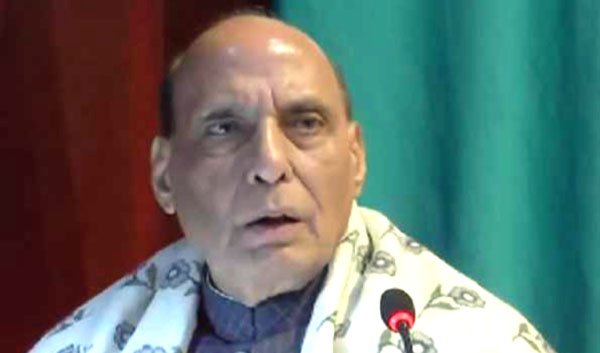New Delhi, July 27 (UNI) Defence Minister Rajnath Singh today said that seamless logistic management – from the mobilisation of the Armed Forces to timely and precise delivery of equipment – was a deciding factor in the success of Operation Sindoor.
The Defence Minister virtually addressed the convocation ceremony of Vadodara-based Gati Shakti Vishwavidyalaya (GSV), a Defence Ministry statement said.
He asserted that in today’s era, wars are won not just with guns and bullets, but with their time-bound delivery, and Operation Sindoor was a vivid example of excellent logistics management.
He emphasised that logistics should be seen through the prism of strategic importance and not just as a process of delivering goods.
“Whether it’s the soldiers fighting on the border or personnel engaged in disaster management, without coordination or proper management of resources, even the strongest of intentions weaken. Logistics is the power that transforms chaos into control. Power is measured not only by weapons, but also by timely resource management. Be it war, disaster or global pandemic, the nation which keeps its logistics chain strong is the most stable, secure and capable,” he said, while underscoring the crucial role institutions like GSV play in providing impetus to India’s aspirations in the 21st century.
Rajnath highlighted the importance of logistics in the economic progress of the country, terming it as one of the main pillars which connects every step – from pre-production to consumption.
He termed the contribution of logistics in India’s GDP as important both directly and indirectly, while also underlining the crucial role it played during COVID, when lakhs of vaccines, oxygen cylinders and medical teams reached from one place to another in a time of need.
The Defence Minister pointed out that India has witnessed unprecedented infrastructure development in the last 11 years, and the foundation of this transformation, which is being carried out with a holistic and integrated approach, has been laid through policy reforms and mission-mode projects.
He added that its impact is not limited to physical connectivity, but it has also increased economic productivity, reduced logistics cost and improved service delivery.
“Under the PM Gati Shakti National Master Plan, seven powerful pillars of development like Railways, Roads, Ports, Waterways, Airports, Mass Transport and Logistics Infrastructure are together giving a strong foundation to India’s economy. PM Gati Shakti is not just a scheme, but a vision – which is making infrastructure futuristic through cutting-edge technology and data-based planning,” Rajnath said.
On the National Logistics Policy, he said the initiative aims to create an integrated, efficient, and cost-effective logistics network that not only reduces logistics cost but also encourages data-driven decision-making.
“The policy aims to bring down the current 13-14 percent logistics cost to the level of developed countries. This will increase the competitiveness of Indian products in domestic and global markets. Reduction in logistics cost will increase efficiency in all sectors and will boost value addition and enterprise growth,” he added.
On the crucial role played by GSV, Rajnath Singh stated the ‘gati’ with which the youth are providing ‘shakti’ to the country is commendable. “GSV, one of the most prestigious study centers in the country in terms of logistics, is not just an educational institution, it is an idea, a mission. It is giving concrete form to the national aspiration of taking India forward in a fast, organised and coordinated manner,” he said.
He described digitisation, automation, real-time tracking, AI-enabled logistics forecasting, and sustainable freight systems as national necessities for India in today’s times. He appreciated the efforts of GSV and the students for making headway in these subjects.
He exhorted the students to become problem-solvers and not limit their knowledge to just seeking jobs. “For India to become Viksit Bharat by 2047, one of the things we need is the smart logistics systems. No country can become developed until goods, services and people move fast and easily in the country,” he added.
GSV, established in 2022 as a central university under the Ministry of Railways, is dedicated to creating world-class talent in the logistics and transportation sectors. Union Minister for Railways, Information & Broadcasting, Ashwini Vaishnaw was also present during the event.











